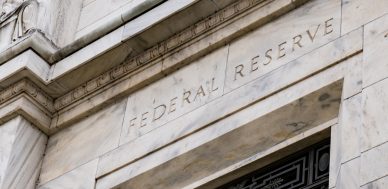Fed’s Report Hints High Valuations, Stock Market Crash Possibly Ahead
No matter what investors do, they should never get too complacent. After all, their stock portfolio could be on the line. And that’s currently truer than ever, as a stock market crash could be ahead.
Why have such a gruesome view on stocks? Because of the Federal Reserve.
You see, twice a year, the Federal Reserve issues a report called that Financial Stability Report (FSR). In this report, the Fed looks at various asset classes and sees how they are doing.
Why does the Fed do this?
In its own words: “By publishing this report, the Board intends to promote public understanding and increase transparency and accountability for the Federal Reserve’s views on this topic.” (Source: “Financial Stability Report May 2019, “ Board of Governors of the Federal Reserve System, last accessed May 9, 2019.)
Not too long ago, the Federal Reserve released the FSR, and there were a few very troubling findings—findings that shouldn’t be ignored by stock investors.
Right off the bat, the Fed said that “Asset valuations remain high relative to their historical ranges in several major markets, suggesting that investor appetite for risk is elevated.”
Keep in mind that the Fed is talking about all assets here, be it stocks, bonds, real estate, etc.
About stocks specifically, the Fed stated that “Equity prices relative to forecast earnings remain above the median value over the past 30 years.” (Source: Ibid.)
Federal Reserve Seems Concerned
I believe the Fed is quite concerned about the stock market. In fact, I think it has just rung the warning bells. But will a stock market crash really follow?
Well, what the Fed said is not wrong. I have been harping on about high valuations for a while, as long-term readers will attest to. Look at any measure of valuation; you will see stocks trading at very high valuations relative to their historical averages.
For example, look at the cyclically adjusted price-to-earnings (CAPE) ratio, a better measure than a simple price-to-earnings ratio. It currently stands at around 30.
The long-term average of the CAPE ratio since 1881 is about 16.96. That means the stock market is trading 76% above the historical average.
What Investors Should Know
In the short term, valuations don’t really matter. The stock market moves on noise and emotions in the short term. However, in the long term, fundamentals really matter. This is when valuations come into play. And whenever valuations have gotten out of hand, a stock market crash has eventually followed.
Right now, valuations are suggesting that a stock market crash could be ahead. Even the Federal Reserve is warning about high valuations. It’s usually not so pessimistic.
If you own a lot of stocks, it’s likely not a good idea to buy when valuations are at multi-year highs. It may be time to take some profits off the table rather than buying more. The time to buy is usually when valuations are at multi-year lows and nobody wants to buy stocks.
